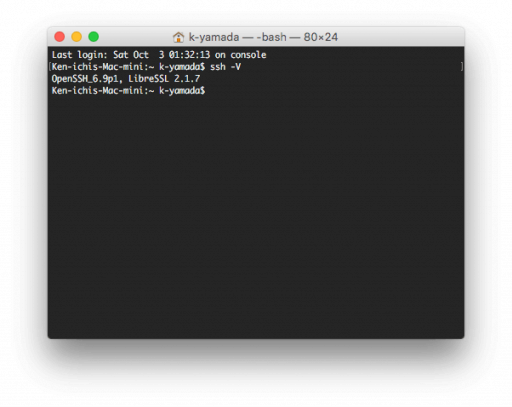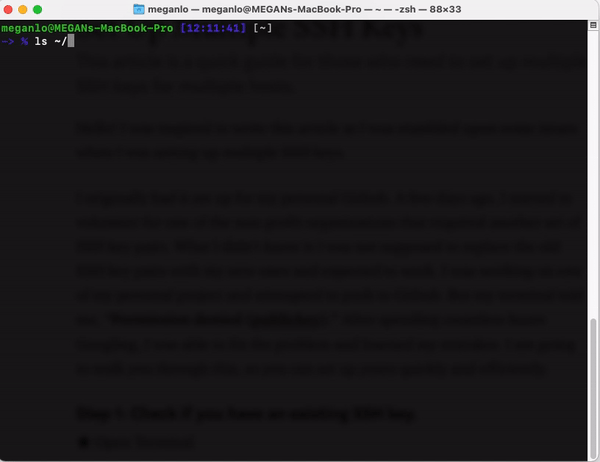
If they don't, something is wrong, and you must not continue connecting until you determine what the issue is and resolve it. If they match, everything is good and you can safely type "yes". You can then compare the result of ssh-keygen to the host fingerprint. Ssh-keygen -l -f /etc/ssh/ssh_host_ecdsa_key.pub # Determine the fingerprint of the ECDSA host key Ssh-keygen -l -f /etc/ssh/ssh_host_ed25519_key.pub # Determine the fingerprint of the ED25519 host key Ssh-keygen -l -f /etc/ssh/ssh_host_rsa_key.pub

For example: # Determine the fingerprint of the RSA host key


The proper way to calculate this fingerprint is to run ssh-keygen -l on the host. The authenticity of host ' (45.55.138.27)' can't be established.ĮD25519 key fingerprint is SHA256:2t1SyRaE55f2FkBIsVVTMOuyTjIHkD+U9hToqjIagV4.Īre you sure you want to continue connecting (yes/no/)? Any time you connect to a new host via SSH, you get a message asking you to verify the authenticity of the host.


 0 kommentar(er)
0 kommentar(er)
